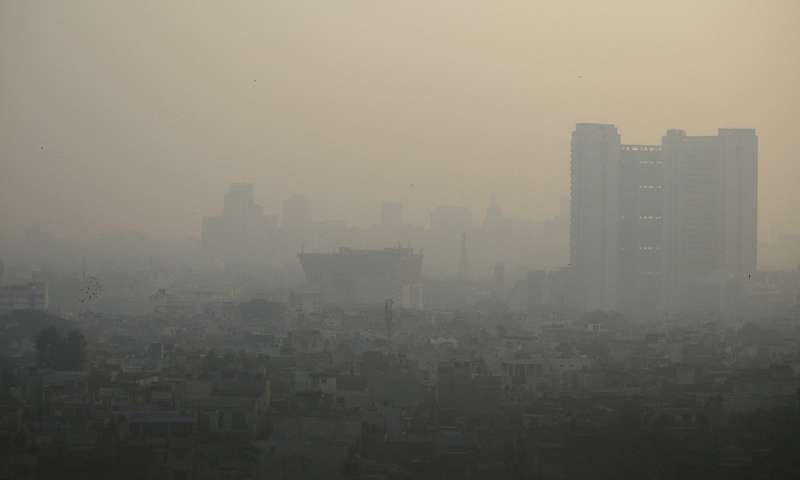
Globally, long-term exposure to outdoor air pollution is responsible for 4.2 million deaths, according to the World Health Organization, and 9 out of 10 people breathe outdoor and/or indoor polluted air.

Public health experts have found there is sufficient evidence that prenatal exposure to widely used insecticides known as organophosphates puts children at risk for neurodevelopmental disorders.

Climate change, Los Angeles fire chief Daryl Osby said, was undeniably a part of why the fires burning in northern and southern California, US, were more devastating and destructive than in years past.

The study of children in Shanghai found that exposure to fine particles (PM2.5) from vehicle exhausts, industrial emissions and other sources of pollution increased the risk of autism spectrum disorder (ASD) by up to 78%.

The first comprehensive fine-scale map of the world's remaining marine and terrestrial wild places shows that just 23 percent of the world's landmass can now be considered wilderness, with the rest lost.

Populations of mammals, birds, fish, reptiles, and amphibians have, on average, declined in size by 60 percent in just over 40 years.

Since 1991, the world's oceans have absorbed an amount of heat energy each year that is 150 times the energy humans produce as electricity annually, according to a new study.

If everyone in the world were to eat the recommended amount of vegetables, fruit, and protein, there wouldn't be enough to go around. This finding comes from a new Canadian study.

Recent studies have shown that global emissions of carbon tetrachloride, that contributes to the destruction of the Earth's ozone layer, have not declined as expected, with about 40,000 tonnes still being emitted each year.

Satellite images released this week reveal that the entirety of East Island was basically wiped out by powerful storm surges in the wake of Hurricane Walaka, one of the most intense Pacific hurricanes on record.

In natural systems such as grasslands and forests, the availability of nitrogen to plants is declining. With nitrogen deficiency, plants are unable to absorb the same quantity of carbon dioxide as they did previously.

Tiny particles of up to nine different types of plastic were discovered during the tests. Plastic in the gut could suppress the immune system and aid transmission of toxins and harmful bugs or viruses, experts believe.

Unless we make some changes, the environmental impacts of the food system could increase by 50 to 90 percent in the next 20 years and the planet will not be able to support our skyrocketing population.

The international study says that rising temperatures, longer droughts, and extreme weather events could hurt barley enough to see significant reductions in crop yields and increases in prices.

A new scientific study of forecasts and alternative scenarios for life expectancy and major causes of death in 2040 shows all countries are likely to experience at least a slight increase in lifespans.